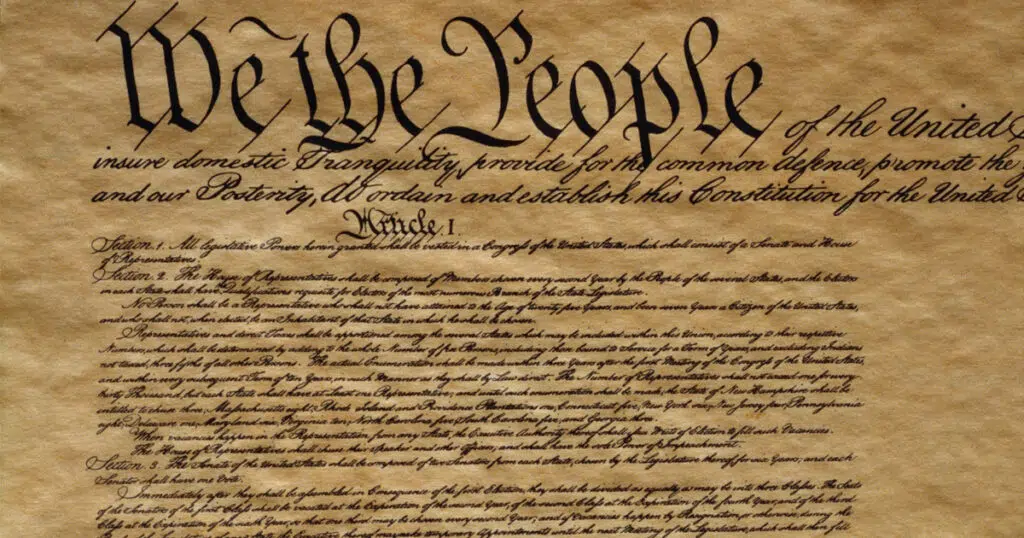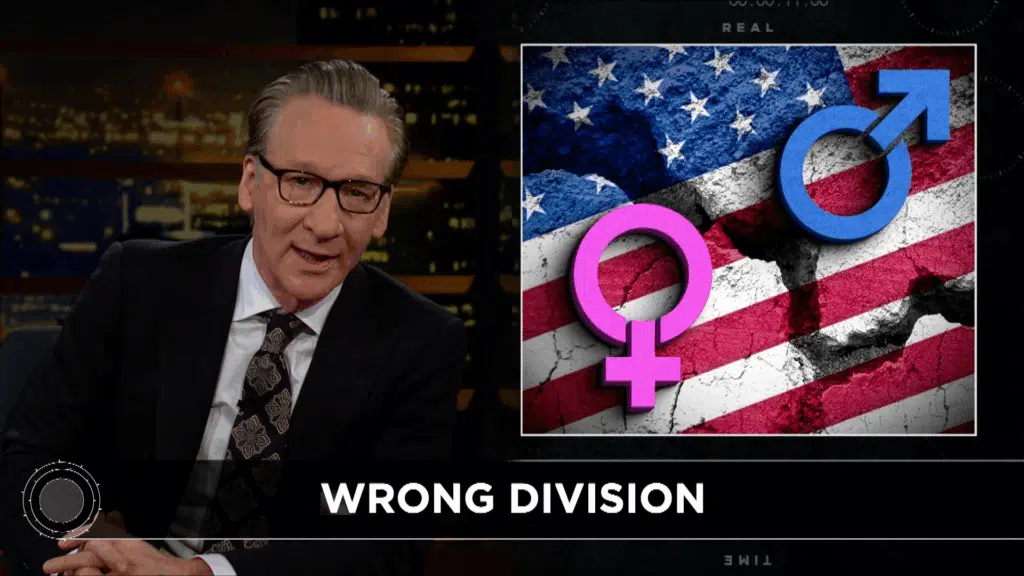
Civics Revolution: Conservatives Are Reviving Traditional Education With a Modern Twist
The classroom subject of “civics” evokes antiquated images of Cold War-era conformity, but Andrew Hart describes a recent teacher workshop on civics with a schoolboy’s exuberance: “It was really refreshing. I was, like, wow.”
The weeklong seminar at the Museum of the American Revolution in Philadelphia delved into the writings of Aristotle and Cicero, the Founding Fathers, Abraham Lincoln, Frederick Douglass, and civil rights titans W.E.B. Du Bois, Martin Luther King Jr., and Malcolm X.
“We spent the first full day just talking about philosophy,” said Hart, who teaches history and government at a Florida private school. “It was almost like a graduate course with a professor who is an expert.”
The Jack Miller Center, a leading civics education provider, organized the seminar, part of a cottage industry that is reviving the tradition of studying the rights and duties of American citizenship, updated for modern sensibilities. After decades of neglect in the wake of the 1960s social upheavals and emphasis on STEM competency, civics is making a comeback. Universities are opening multimillion-dollar civics schools, some with deans and doctoral programs, and more than half the states now have civics requirements or competency tests in K-12. The boom reached a crescendo this summer with 45 states considering 198 bills related to K–12 civic education.
But reintroducing the subject in today’s hyper-partisan climate is not simply about making students learn the ABCs of government and practicing the art of rhetoric. Civics now comes with a warning label – “the most bitterly contested subject in education today,” according to The Atlantic – placing it squarely in the crosshairs of the culture wars.
The tension around civics reflects the national disagreement about the meaning of the United States in the 21st century: Is America a land of opportunity and freedom for all? Or is it designed to award unearned privilege to a select few, and second-class status to everyone else? The answer determines how middle schoolers and high schoolers are taught about the Declaration of Independence, the Constitution, the Gettysburg Address, Dr. King’s “I Have a Dream” speech, and other key texts of the American experience.
Ideological disagreements over the nation’s identity have led to bitter clashes over curricula, reading assignments, and library books in local school boards and state legislatures.
Since the federal government has limited say over what K-12 schools teach – and Congress punted in 2022 on a once-in-a-generation opportunity to expand K-12 civics with $1 billion in annual funding – states and local school districts are developing their own civics pilot projects, standards, and tests. Nonprofits of all political stripes stand at the ready to supply curricula, study guides, and professional support for teachers.
Progressive groups have redoubled their ongoing efforts, developing educational materials that recast the nation’s history as a counternarrative of righteous resistance against colonialism, capitalism, white supremacy, and the patriarchy. Such projects include Southern Poverty Law Center’s Learning for Justice and Teaching Tolerance, Zinn Education Project, National Black Lives Matter at School, and the 1619 Project Curriculum. Ethnic studies courses, which are required for high school graduation in some states and school districts, explicitly draw on Critical Race Theory and queer advocacy to emphasize intersectionality, oppression, power, privilege, and “whiteness” as the foundational values of Western Civilization
In opposing this trend, some conservatives are moving away from the reflexive, flag-waving patriotism of the past. It “teaches that the founders are awesome and Lincoln perfects it. And then you needed Martin Luther King to finish things off,” the New York Times columnist Ross Douthat told Chris Rufo, a senior fellow at the Manhattan Institute, on a recent podcast.
“I feel like certain versions of that conservative patriotic education don’t feel as deep and rich as America deserves,” Douthat said.
The Philadelphia-based Jack Miller Center and other civics advocates have settled on a synthesis of both perspectives, avoiding the extremes of cynicism and nostalgia that reduce the nation’s history to tropes and caricatures. The center’s eponymous founder committed his fortune from the office supply business to “solving the national crisis of uninformed citizenship by teaching America’s founding principles and history.” The center aims to de-escalate the subject by bypassing interpretive textbooks and online learning aids and going directly to the original documents – the Federalist Papers, presidential speeches and letters, U.S. Supreme Court decisions, and much more.
Its K-12 teacher workshops include the types of readings and writers that were largely ignored in the stodgy civics instruction a generation ago: first lady Abigail Adams, abolitionist William Lloyd Garrison, the Slavery Provisions of the U.S. Constitution, pro-slavery advocate John Calhoun, poets Walt Whitman and Langston Hughes, Nikole Hannah-Jones (the architect of the NYT’s 1619 Project), and Amanda Gorman, the African American poet who recited her verse, “This Hill We Climb,” at President Biden’s 2021 inauguration.
This viewpoint diversity reflects the Jack Miller Center’s philosophy that American identity is forged out of disagreement, and that understanding the nation’s history and development requires familiarity with the historical and literary documents written by the leading voices in those controversies, said Lucas Morel, professor of politics at Washington & Lee College in Virginia. He leads Jack Miller Center teacher seminars and serves on the organization’s board of directors.
“The founding in itself and the early American period – these were products of debate and discussion,” Morel said. “And we have found over time that the teachers find these programs so engaging precisely because the Jack Miller Center does not say, ‘These are the eight things you have to believe about the Declaration of Independence, and you have to write lesson plans that have these answers.’”
The Jack Miller Center’s influence comes from leveraging its 1,300-plus affiliated academicians, who have participated in its workshops, to train middle- and high-school teachers in the civics canon. At the 13 civics schools at public universities, nine deans or directors are center fellows, and one in three civics faculty is an alumnus of its professor training and networking programs. More than 130 of these scholars, or about 10% of the professors who have participated in center programs, have taught some 3,000 K-12 teachers in summer institutes during the past decade, and these numbers are expected to grow. By the end of this year, the Jack Miller Center will have trained about 4,000 K-12 educators in this growing network.
In a typical multi-day Jack Miller Center seminar, each K-12 teacher is expected to read and discuss a curated anthology, spanning several hundred pages of primary sources. Curriculum development sessions help teachers apply the material in the classroom.
Last year, the center announced the Civics Foundations Graduate Consortium, a network of universities offering graduate-level education for K-12 civics teachers focusing on history and government rather than more typical subjects like pedagogy, child development, and administration. The consortium launched with four institutions, including the University of Chicago Graham School, and by 2028 plans to expand to 22 universities. One of the consortium’s courses, “The Settling of America: Immigration and Ethnicity, 1924 – Present,”is inescapably topical, as the transition from the Biden to the Trump administrations has brought a shift from a policy of mass immigration to mass deportations.
With a fundraising total of $5.5 million last year, the center is part of a national civics movement of philosophically aligned educators, administrators, and funders. Its two dozen employees focus on just one aspect of civics – knowledge – largely leaving civics advocacy, civics skills, and civic responsibility to others.
Some advocates say that the civics network should borrow the template perfected by leftist academics. They reoriented research with the creation of university centers and departments dedicated to women’s, critical race, and gender/queer studies during the past half-century.
“Education is a long game. You train the professors who do the research and educate a generation of teachers,” explained pioneer Paul Carrese, the center’s senior fellow for Civic Thought and Leadership, who had served as founding director of the School of Civic and Economic Thought and Leadership at Arizona State University. “Things happen glacially, but gradually you can turn the battleship.”
Despite the center’s aspirations for nonpartisanship, its leaders are not value-neutral. They describe the center’s work as patriotic and committed to the “sacred obligation” of preserving America’s founding principles. The organization has received in excess of $1 million from a number of conservative funders, such as the Charles Koch Foundation, Ed Uihlein Family Foundation, Paula and John Lillard, Sarah Scaife Foundation, Lynde and Harry Bradley Foundation, and the Thomas W. Smith Foundation.
To some degree, as a response to the overreach of the Great Awokening of the past decade, civics is gaining traction. Currently, 28 states have civics assessments, and 14 of them are a version of the national citizenship test, according to iCivics, an advocacy group founded in 2009 by the late Supreme Court Justice Sandra Day O’Connor. In the past few years, 28 states have adopted over 40 policies, such as civics course requirements, civic accomplishment recognitions, funding for professional learning, and state civics commissions, according to a forthcoming article co-authored by Carrese in the journal of the National Association of State Boards of Education. The U.S. Chamber of Commerce Foundation has even created a National Civics Bee.
The tone of civics literature is replete with gloomy assessments of deficiencies in student knowledge of basic civics, a mood that recalls the panic of the Why Johnny Can’t Read era, with a 2021 civics report warning that “the world’s oldest constitutional democracy [is] in grave danger.” Carrese echoed these sentiments in a Jack Miller Center publication last year.
Civics seemed to be on the cusp of a major breakthrough during the Biden administration that would have transformed the field from a provincial outpost in K-12 education. In 2021, a $1.1 million bipartisan report endorsed by iCivics, “Educating for American Democracy,” laid out a roadmap for civics and history education, backed by 300-plus education experts across the political spectrum. It appeared that the elusive consensus had finally materialized. The report was a full-throated endorsement of civics updated for the 21st century that would expand the American story to include “the histories of women, Indigenous Americans, immigrant communities, sexual minorities, and those who are differently abled.”
The simultaneous introduction in Congress of the Civics Secures Democracy Act would have designated $1 billion a year for civics programs over five years. Had it been enacted into law, the legislation would have increased federal spending on K-12 civics from 46 cents per student to $18 per student, according to an analysis by iCivics.
The promise died when the Biden administration’s Department of Education issued an unrelated proposal for two grant programs in U.S. history and civics. It cited as historical authorities the controversial 1619 Project – a series of magazine articles later published as a book claiming that the nation’s founding ideals were a “lie” to justify the creation of a “slavocracy” – and the “antiracist” polemics of Ibram X. Kendi, who famously wrote that “the only remedy to past discrimination [against blacks] is present discrimination [against whites].”
The DOE proposal was full of woke jargon about systemic racism, “identity safe” classrooms, and the moral imperative to “validate” marginalized identities – reflecting the views of progressive historians who criticize the approach to civics that’s based on founding principles and classic texts.
They stress that America’s founding excluded and trampled on Indian, black, female, and queer voices, a subjugation that is perpetuated by civics educators largely focusing on founding documents authored by white males, most of them Christian and all of them Eurocentric.
The academic left demands the “centering” of marginalized voices in history education to compensate minority groups for historical exclusion. Civics advocates acknowledge the particulars but reject the general charge.
“That exclusion is real and inescapable,” said Drew Kurlowski, a political scientist at Coastal Carolina University who leads Jack Miller Center workshops for K-12 teachers. “The founders built a system that claims universal principles like liberty and equality and natural rights, and they denied them in practice to a large, if not the majority, of the population.”
Still, Kurlowski said that there is a proper order to things, and students should start at the beginning, with the documents in the historical record.
“You have to say, ‘What did the Founders propose?’ before you can say, ‘What did they ignore, what did they get wrong, and how have other people responded,’” Kurlowski said. “We do a disservice when we go straight to the critiquing without first comprehending the argument.”
Tom Kelly, the center’s chief program officer, agreed that the Declaration of Independence, the Federalist Papers, and other key documents “should not be treated as having come from Mount Olympus.”
“The founders were not gods, but human beings, and they made mistakes as all human beings do,” he said.
But the progressive critique is based on false assumptions, Kelly said.
“The larger point seems to suggest that the problem we face today is that students understand the perspective of the founders too well, and what they don’t have are means and tools by which to critique their point of view or their accomplishments,” Kelly said. “The fact is: No, students do not understand the perspective and arguments that created our political institutions.”
This article was originally published by RealClearInvestigations and made available via RealClearWire.



